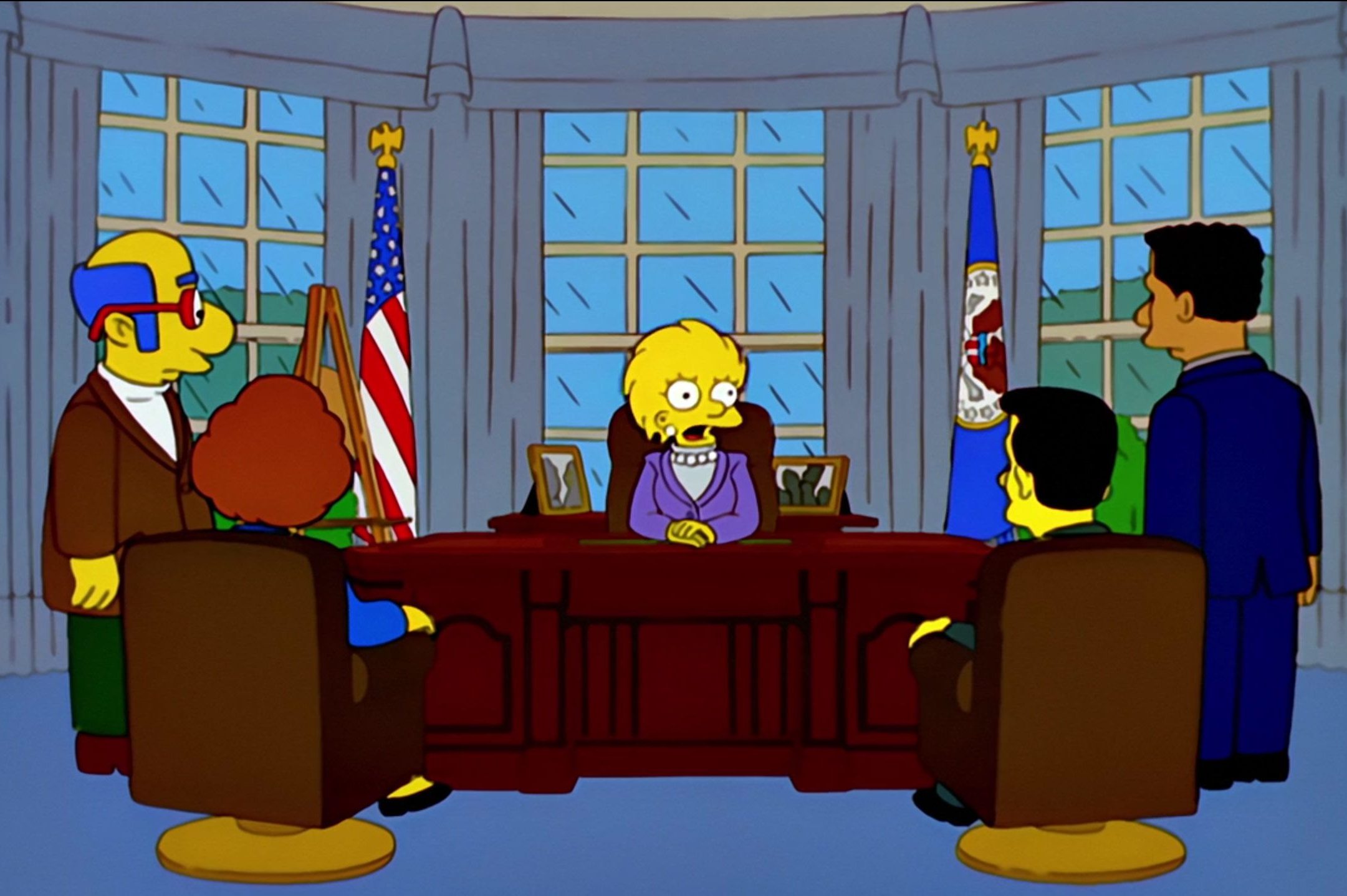When Matt Groening created “The Simpsons” in 1987, he had no idea how impactful the animated sitcom would become. It is the longest-running American animated television series and follows the satirical adventures of a working-class family in the fictional American city of Springfield. It’s been described as a perfect parody of American culture and society, television and the human condition.
“The Simpsons” includes main characters such as Homer, the father, a nuclear power plant operator; Marge, his wife, a stereotypical American housewife and their three children: Maggie, the youngest child who rarely speaks but emotes with subtle gestures and communicates by sucking on a pacifier; Bart, the rebellious and mischievous oldest child and Lisa, a child prodigy who often sees herself as a misfit due to her extremely high level of intelligence. Groening describes the characters as “creatures of consumption and envy, laziness and opportunity, stubbornness and redemption. Just like the rest of us. Only exaggerated.” Dan Greaney, one of the show’s writers, has also stated that “The Simpsons” has always embraced the over-the-top side of American culture.
There has been a lot of buzz in recent years about certain episodes of “The Simpsons” that have predicted future events. The exact number of correct predictions is unknown, but the majority fall between 17 and 20. There are numerous theories that explain this phenomenon, including the writers being psychic, having the ability to time travel or obtaining inside information from somewhere. Viewers have also spent hours going back through previous episodes looking for similar strange connections or predictions.
Perhaps one of the most famous predictions the show made was Donald Trump’s election as President of the United States. In the episode “Bart to the Future,” which aired in 2000, Bart Simpson is shown a vision of his life in which he becomes a failed musician. His sister Lisa, on the other hand, grows up to become the “Chief Executive” of the United States. Her predecessor is none other than former President Donald Trump. As soon as she is sworn in, she begins working to correct the problems left by the previous administration. In one scene, she tells her staff, “As you know, we’ve inherited quite a budget crunch from President Trump.” Greaney told The Hollywood Reporter that the episode was written as a warning to America, adding that “it was pitched because it was consistent with the vision of America going insane.”
He also mentioned that it was important for Lisa to take over the presidency when America was on the ropes. They made Trump president before her to ensure there would be problems beyond her ability to solve. Writer Al Jean clarified that they chose Trump because they were looking for a funny celebrity, and because he had previously mentioned that he would consider running for office at some point in the future. However, they did not anticipate him becoming President. “If you had said to our staff then that something in that Simpsons‘ season was going to come true, NO ONE would have said that was the thing. It seemed so far-fetched at that time. It wasn’t that he didn’t have ambition, but the idea was so bizarre, nobody in the world would have believed it,” Jean said.
Similarly, the viral image allegedly obtained from the “Bart in The Future” episode, which depicts Trump in a setting and pose he later assumed in 2015, suggests that the writers knew exactly what was going to happen, down to his specific mannerisms and actions. The images, however, were taken from a YouTube video titled “Trumptastic Voyage,” which was posted on the Animation Domination channel in July 2015, roughly a month after Trump announced his campaign.
“The Simpsons” has also been incorrectly credited with foreseeing the invention of the smartwatch. “Lisa’s Wedding,” a 1995 episode, shows Lisa’s fiancé bending over and speaking into a strange-looking device on his wrist: a half flip phone, half wristwatch that looks similar to what is known today as a smartwatch. This prediction, however, is not unique to “The Simpsons,” as several shows have depicted gadgets that look and function similarly to the modern smartwatch. Furthermore, the modern concept of a smartwatch dates back to the introduction of the Seiko TV Watch in 1982.
Another popular prediction is seen in the “You Don’t Have to Live Like a Referee” episode, which aired in March 2014. In the episode, a world football governing body official is arrested on charges of widespread corruption. In 2015, Swiss police arrested two FIFA officials on suspicion of accepting “millions of dollars” in bribes. The accuracy of this prediction is not entirely surprising, given that there had been a history of FIFA corruption allegations dating back at least to 2010.
More than 700 episodes of “The Simpsons” have aired to date, and according to former co-executive producer Daniel Chun, this has given them a lot of opportunity to make predictions that may or may not come true. Chun also stated that the show’s writers share certain guiding principles, which have undoubtedly contributed to the show’s consistent accuracy. “People are greedy, corporations are terrible, and they have a tendency to ruin everything, but they are also incredibly lame,” Chun said. “Corruption is rampant, and society as a whole has the memory of a goldfish.”
Matt Zaremsky, a math professor at the University of Albany, conducted a study in 2018 to explain the statistics behind these predictions. He hypothesized that the show had made roughly 120,000 jokes in its 29-season run (at the time), of which approximately 1,200 were future predictions. As previously stated, the number of correct predictions has been estimated to be between 17 and 20. Using 20 as the estimated average number of predictions that “came true,” their prediction success rate would be roughly 1.6%, which is pretty much negligible. In his words, “Statistics says “The Simpsons” just had so many jokes and so many predictions that they essentially got lucky.”
As evidenced by the examples above, most of these “predictions” existed prior to the release of these episodes. The authors wrote them based on their observations of the world and satirized current events, so they appear to be predictions. There is also a strong tendency to focus solely on the predictions that came true, which is an example of confirmation bias. As stated earlier, the show has made over 120,000 jokes since its inception, with only a small percentage of them proving to be correct predictions.
Humans are creatures of habit and their actions are unavoidably repeated over time. When viewed in this light, it is relatively simple to see how patterns can be drawn and predictions can be made based on current events. It’s safe to say that the jokes in “The Simpsons” that come true are merely examples of satire unironically becoming reality. Their success comes from the predictability of human nature and sheer luck.

















